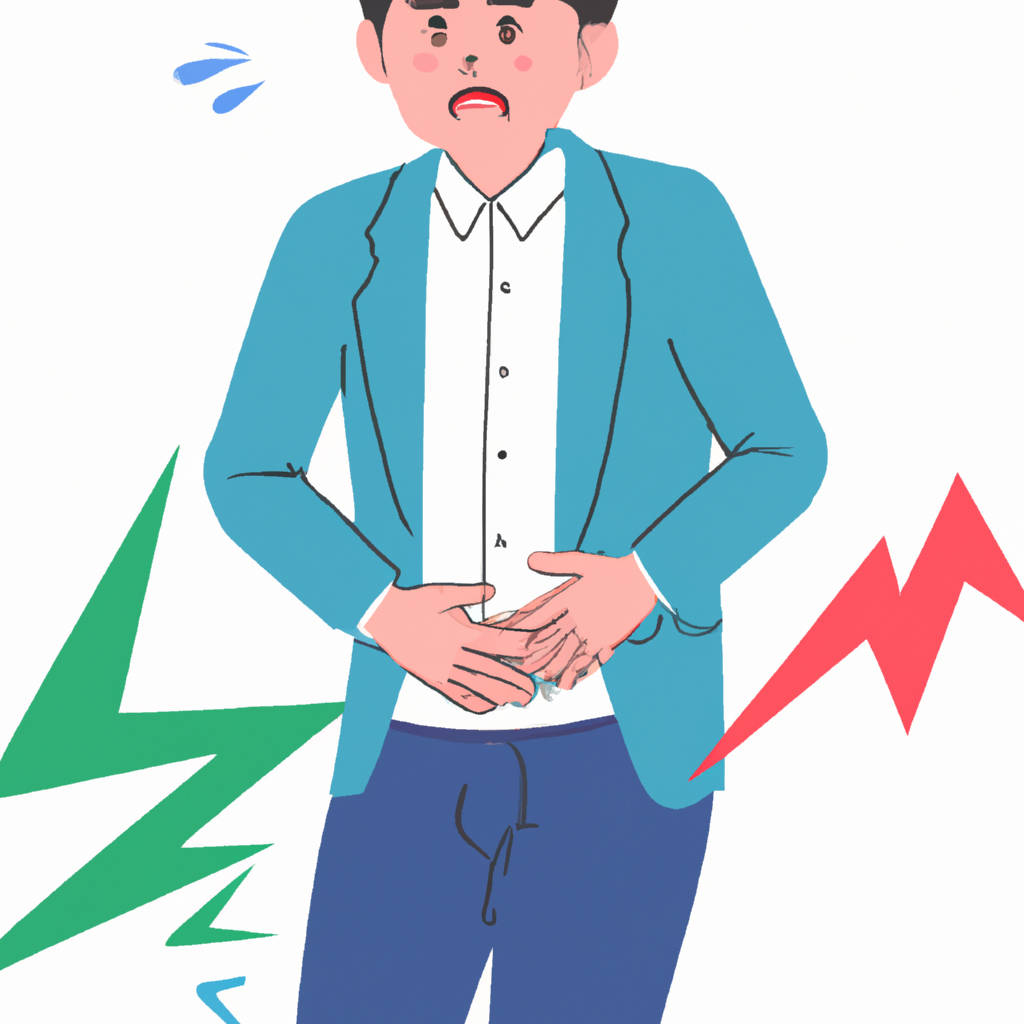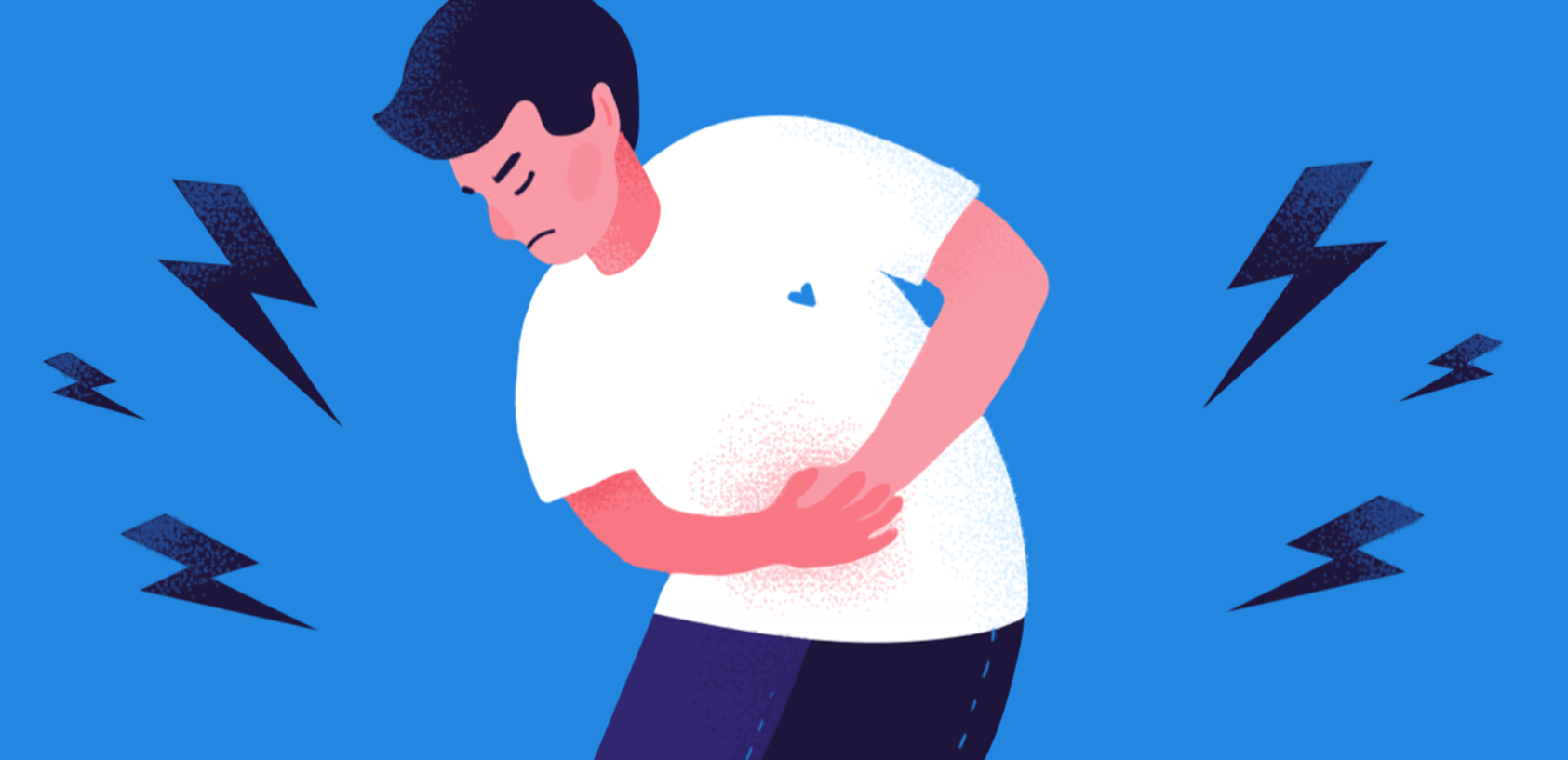Understanding abdominal pain involves recognizing its multiple potential causes and learning about home remedies that can ease discomfort. This pain may be a result of various conditions ranging from simple indigestion, gas, or constipation to more serious issues like gallstones, ulcers, or kidney stones. In some cases, it can also be a symptom of a life-threatening condition such as appendicitis or an ectopic pregnancy. For mild cases of abdominal discomfort, home remedies can be very helpful. Drinking plenty of water can help to alleviate symptoms of constipation or gas, while a heating pad or hot water bottle can help to reduce muscle cramps or spasms. Certain herbs, such as ginger and chamomile, can also be beneficial in soothing an upset stomach.
However, it is essential to seek medical advice for persistent or severe abdominal pain to ensure appropriate diagnosis and treatment. Moreover, understanding the root cause of the pain is crucial for its effective management. It is also important to remember that while home remedies can help, they are not replacements for professional medical care. The best course of action is to consult a healthcare provider if the pain continues or worsens over time.
Common Causes of Abdominal Pain
Abdominal pain is a common symptom experienced by many people and can be triggered by various factors. One of the primary causes is indigestion, which typically results from overeating, consuming fatty or greasy foods, or drinking alcoholic or carbonated beverages. It can also be a result of stress or anxiety. Gastroenteritis, often referred to as the stomach flu, is another cause of abdominal discomfort. It is usually caused by a bacterial or viral infection and can lead to symptoms such as vomiting and diarrhea. Other common causes include appendicitis, which is an inflammation of the appendix, and kidney stones, hard deposits made of minerals and salts that form inside your kidneys.
Women may experience abdominal pain due to menstrual cramps or conditions such as endometriosis or ovarian cysts. Gallstones, hard particles that develop in the gallbladder, can also lead to intense abdominal pain, particularly after meals. Irritable bowel syndrome (IBS), a disorder that affects the large intestine, is another common cause of abdominal discomfort, resulting in symptoms like cramping, bloating, and changes in bowel habits. Peptic ulcers, sores that develop on the inside lining of your stomach and upper portion of your small intestine, are another source of abdominal pain.
Chronic conditions such as Crohn’s disease and ulcerative colitis, both types of inflammatory bowel disease, result in long-term inflammation and ulcers in the digestive tract, often causing severe abdominal pain. Pancreatitis, inflammation of the pancreas, can also produce pain in the upper abdomen. Moreover, gastroesophageal reflux disease (GERD), a chronic condition where stomach acid frequently flows back into the tube connecting your mouth and stomach, often leads to heartburn and abdominal pain.
In some cases, abdominal pain can be a symptom of more serious conditions such as stomach or colon cancer. Therefore, persistent or severe abdominal pain should not be ignored and medical attention should be sought promptly. The specific treatment for abdominal pain largely depends on its underlying cause, which can be determined through physical examination and medical tests.
Stress is a common psychological condition that significantly affects various aspects of physical health, including abdominal pain. The intricate relationship between the brain and the digestive system plays a crucial role in this regard. High levels of stress or chronic stress can lead to significant changes in gastrointestinal function, often resulting in abdominal discomfort. When an individual experiences stress, the body responds by releasing stress hormones, such as cortisol and adrenaline. These hormones, in turn, trigger the body’s fight or flight response, which can disrupt the digestive system and lead to abdominal pain. Besides, stress can also exacerbate underlying conditions such as irritable bowel syndrome (IBS), gastroesophageal reflux disease (GERD), peptic ulcers, and inflammatory bowel disease (IBD), often worsening abdominal pain. Furthermore, the impact of stress on the immune system can lead to inflammation in the gastrointestinal tract, contributing to discomfort. Therefore, stress management techniques like meditation, regular exercise, healthy eating, and adequate sleep can be instrumental in managing stress-related abdominal pain. It is also important to seek professional medical help if abdominal discomfort persists, as it might be indicative of more serious underlying conditions. In conclusion, stress undeniably plays a significant role in abdominal pain, reinforcing the importance of maintaining mental well-being to ensure optimal physical health.
Managing Gas-Related Abdominal Discomfort
Managing gas-related abdominal discomfort requires understanding its causes and implementing strategies to alleviate it. This discomfort often arises from the digestive process, when the body breaks down food in the large intestine, generating gases in the process. Certain foods such as beans, vegetables, and whole grains may lead to increased gas production. Additionally, swallowing air while eating or drinking can contribute to the accumulation of gas.
To manage this discomfort, dietary modifications are often recommended. This may involve identifying and minimizing the intake of foods that exacerbate gas production. It’s essential to note that this doesn’t mean completely eliminating these foods, as many of them are high in necessary nutrients. Instead, a balanced approach is suggested, gradually introducing these foods into the diet to allow the body to adjust.
Drinking plenty of water and regular physical activity can also help stimulate the digestive system, reducing the likelihood of gas-related discomfort. Avoiding carbonated drinks, chewing gum, and smoking can also minimize the amount of swallowed air, thus reducing gas production.
Additionally, over-the-counter medications are available that can help reduce gas and bloating. These medications work by breaking down gas bubbles, making it easier for the body to eliminate them. However, these should only be used under the advice of a healthcare provider.
It’s important to remember that while gas-related abdominal discomfort is usually harmless, persistent or severe symptoms could indicate a more serious health issue. Therefore, if discomfort persists or is accompanied by other symptoms such as weight loss, blood in stool, or severe pain, it is crucial to seek medical attention.
In summary, managing gas-related abdominal discomfort involves a combination of dietary changes, lifestyle modifications, and possibly over-the-counter medications. It is always recommended to consult with a healthcare provider to ensure that these strategies are suitable and effective.
Dealing with Acidity-Related Abdominal Pain
Dealing with acidity-related abdominal pain can be a significant challenge. This type of discomfort is often caused by excessive stomach acid, which can irritate the digestive system and manifest as a burning sensation in the abdomen. Sometimes, this pain can radiate to other parts of the body, like the chest and back, making it even more uncomfortable. It’s crucial to recognize that this isn’t a minor issue to be ignored. Persistent acidity-related abdominal pain may indicate serious underlying conditions like gastroesophageal reflux disease (GERD), peptic ulcers, or gastritis, which require medical intervention.
To manage this pain, various strategies can be implemented. First and foremost, dietary changes, such as avoiding spicy and fatty foods, limiting alcohol consumption, and eating smaller meals throughout the day instead of three large ones, can help prevent acid production and reduce discomfort. Drinking plenty of water and avoiding late-night eating can also be beneficial. Over-the-counter antacids can provide temporary relief by neutralizing stomach acid. However, if the pain persists, stronger medications like proton pump inhibitors or H2 blockers, which reduce the production of stomach acid, may be needed.
Lifestyle modifications like maintaining a healthy weight, quitting smoking, and managing stress can also help prevent acid-related abdominal pain. Regular physical activity can aid digestion and reduce the risk of acid reflux. It’s also beneficial to avoid lying down or going to bed soon after eating to prevent acid from flowing back into the esophagus.
While these measures can provide relief, it’s essential to seek medical advice if the pain is severe, persistent, or accompanied by other symptoms like weight loss, vomiting, or difficulty swallowing. A healthcare professional can provide an accurate diagnosis and recommend the most suitable treatment plan. In some cases, surgery may be necessary to treat the underlying condition causing the acidity-related abdominal pain. Remember, the key to dealing with this type of discomfort is to address the cause rather than just the symptoms.

Addressing Irritable Bowel Syndrome (IBS) Symptoms
Irritable Bowel Syndrome, often abbreviated as IBS, is a prevalent gastrointestinal disorder that affects a significant proportion of the global population. Characterized by a range of symptoms including abdominal pain, bloating, and irregular bowel habits, IBS can significantly impact the quality of life of those afflicted. Addressing these symptoms can be challenging, given the variability in presentation and severity among individuals.
A multifaceted approach is typically employed, incorporating dietary modifications, pharmacological interventions, and psychological therapies. Many individuals with IBS experience symptom relief through dietary changes, including the adoption of a low FODMAP diet which minimizes specific carbohydrates known to trigger IBS symptoms. Others find benefit in soluble fiber supplements which can help to stabilize bowel movements.
Pharmacological interventions are another crucial aspect of IBS management. Medications such as antispasmodics can alleviate abdominal pain and cramping, while laxatives or antidiarrheals can help regulate bowel habits depending on the subtype of IBS (constipation-predominant, diarrhoea-predominant, or mixed-type).
Psychological therapies, including cognitive behavioral therapy and hypnotherapy, have also shown efficacy in managing IBS symptoms, particularly in individuals for whom stress or anxiety exacerbates their condition. Evidence suggests that these therapies can reduce the severity and frequency of IBS symptoms, and improve overall quality of life.
Furthermore, emerging research into the gut-brain axis and the role of gut microbiota in IBS offers promising future avenues for addressing this condition. Probiotics, which can help to restore gut microbiota balance, are being increasingly explored as potential therapeutic agents for IBS.
However, it is important to note that what works for one individual might not work for another, due to the highly individual nature of IBS. Therefore, a personalized approach, taking into account the patient’s specific symptoms, triggers, and lifestyle factors, is key to effectively managing and addressing IBS symptoms.
Medications and Their Potential to Cause Abdominal Pain
Medications, while often crucial for treating various ailments, are not without their potential side-effects. One such adverse effect that numerous medicines can induce is abdominal pain. Medications can disrupt the digestive system, leading to discomfort in the abdominal area. Many classes of drugs, including anti-inflammatory drugs, antibiotics, antidepressants, and certain cancer treatments, can cause pain in the midsection.
Non-Steroidal Anti-Inflammatory Drugs (NSAIDs), commonly used to alleviate pain and inflammation, can lead to stomach pain, ulcers, and bleeding in the digestive tract. The stomach discomfort typically arises due to the inhibition of certain enzymes that protect the stomach lining. Antibiotics, while effective in eliminating harmful bacteria, can also destroy beneficial gut bacteria, leading to an imbalance in the intestinal flora and subsequent stomach discomfort.
Antidepressants, particularly selective serotonin reuptake inhibitors (SSRIs), can cause stomach pain as a side-effect. They increase the level of serotonin in the brain, which can stimulate the gut nerves and lead to stomach cramps. Some cancer treatments can also induce abdominal discomfort. Chemotherapy drugs, for instance, can damage the lining of the intestine, causing inflammation known as mucositis, leading to severe stomach pain.
It is also important to note that the risk of abdominal pain may increase when certain medications are combined. Therefore, patients should always inform their healthcare provider of all the medicines they are taking, including over-the-counter drugs and dietary supplements. Moreover, the dosage and method of administration can also affect the likelihood of experiencing stomach pain. For example, taking medicines with food or milk can often reduce the risk of stomach discomfort. In conclusion, while medications are indispensable for managing various health conditions, they carry the potential to cause abdominal pain, underlining the importance of using them judiciously under the guidance of a healthcare provider.

Tips for Reducing Abdominal Pain Due to Fast Eating and Poor Chewing Habits
Abdominal pain due to fast eating and poor chewing habits is a common discomfort experienced by many. This can be reduced through several strategies focused on modifying eating behaviors. Firstly, make a conscious effort to slow down your eating process. This can be achieved by eliminating distractions, such as turning off the television or putting away your phone during mealtimes. It’s essential to focus on the food in front of you and be fully engaged in every bite. Secondly, ensure that you chew your food thoroughly before swallowing. Chewing not only aids in digestion by breaking down food into smaller pieces, but it also signals your stomach to produce enough acid to continue the process. Therefore, poor chewing habits can lead to undigested food, which can cause bloating and abdominal discomfort. Thirdly, it may be helpful to eat smaller, frequent meals throughout the day rather than three large meals. This practice can prevent you from getting overly hungry and subsequently overeating or eating too quickly.
Lastly, consider incorporating digestive aids into your routine. Probiotics can promote a healthy gut flora, while herbal teas such as peppermint and ginger can soothe an upset stomach. It’s also crucial to stay hydrated, but try to avoid drinking large amounts of liquids during meals, as this can dilute stomach acids and impair digestion. Instead, aim to drink water between meals. By implementing these tips, you can significantly alleviate abdominal pain caused by fast eating and poor chewing habits. It’s important to listen to your body’s signals and adjust your eating habits accordingly.


